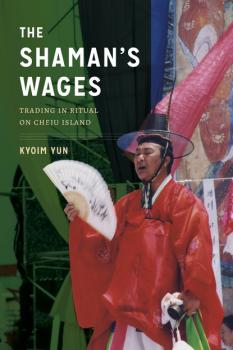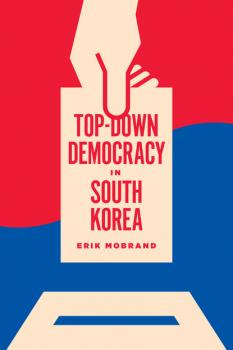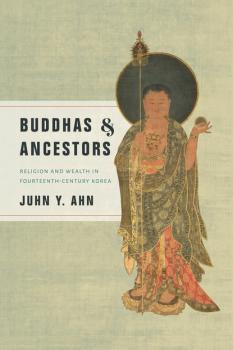Korean Studies of the Henry M. Jackson School of International Studies
Скачать книги из серии Korean Studies of the Henry M. Jackson School of International StudiesThe Shaman's Wages
Breaking from previous scholarship on Korean shamanism, which focuses on mansin of mainland Korea, The Shaman’s Wages offers the first in-depth study of simbang , hereditary shamans on Cheju Island off the peninsula’s southwest coast. In this engaging ethnography enriched by extensive historical research, Kyoim Yun explores the prevalent and persistent ambivalence toward practitioners, whose services have long been sought out yet derided as wasteful by anti-shaman commentators and occasionally by their clients.Intrigued by discord between simbang and their clients over fee negotiations, Yun set out to learn the deep-rooted legacy of condemning or trivializing the practitioners’ self-interests, from a neo-Confucian governor’s purge of shrines during the Chosŏn dynasty to the recent transformation of a community ritual into a practice recognized through UNESCO World Heritage status. Drawing on a wealth of firsthand observations, she shows how simbang distinguish ritual exchanges from more mundane instances of bartering, purchasing, bribing, and gift giving and explains why ritual affairs are nonetheless inevitably thorny. This original study illuminates the intertwining of religion and economy in shamanic practice on Cheju Island.
Top-Down Democracy in South Korea
Although South Korea is widely heralded as a successful new democracy—buttressed by a politically engaged public—elections have done less than expected to force political parties to reorganize their elitist structures. In Top-Down Democracy in South Korea , Erik Mobrand demonstrates that political elites, contrary to theoretical expectations, have responded to freer and fairer elections by entrenching rather than abandoning exclusionary practices and forms of party organization.Exploring South Korea’s political development from 1945 through the end of dictatorship in the 1980s and into the twenty-first century, Mobrand challenges the view that the origins of the postauthoritarian political system lie in a series of popular movements that eventually undid repression. He argues that we should think about democratization not as the establishment of an entirely new system, but as the subtle blending of new formal rules with earlier authority structures, political institutions, and legitimizing norms.
Flowering Plums and Curio Cabinets
The social and economic rise of the chungin class (�middle people� who ranked between the yangban aristocracy and commoners) during the late Chos n period (1700�1910) ushered in a world of materialism and commodification of painting and other art objects. Generally overlooked in art history, the chungin contributed to a flourishing art market, especially for ch�aekk ri, a new form of still life painting that experimented with Western perspective and illusionism, and a reimagined style of the traditional plum blossom painting genre.Sunglim Kim examines chungin artists and patronage of the visual arts, and their commercial transactions, artistic exchange with China and Japan, and historical writings on art. She also explores the key role of men of chungin background in preserving Korean art heritage in the tumultuous twentieth century, including the work of the modern Korean collector and historian O Se-ch�ang, who memorialized many chungin painters and calligraphers.Revealing a vivid picture of a complex art world, Flowering Plums and Curio Cabinets presents a major reconsideration of late Chos n society and its material culture. Lushly illustrated, it will appeal to scholars of Korea and East Asia, art history, visual culture, and social history.
Buddhas and Ancestors
Two issues central to the transition from the Kory to the Chos n dynasty in fourteenth-century Korea were social differences in ruling elites and the decline of Buddhism, which had been the state religion. In this revisionist history, Juhn Ahn challenges the long-accepted Confucian critique that Buddhism had become so powerful and corrupt that the state had to suppress it. When newly rising elites (many with strong ties to the Mongols) used lavish donations to Buddhist institutions to enhance their status, older elites defended their own adherence to this time-honored system by arguing that their donations were linked to virtue. This emphasis on virtue and the consequent separation of religion from wealth facilitated the Confucianization of Korea and the relegation of Buddhism to the margins of public authority during the Chos n dynasty.
The Emotions of Justice
The Choson state (1392–1910) is typically portrayed as a rigid society because of its hereditary status system, slavery, and Confucian gender norms. However, The Emotions of Justice reveals a surprisingly complex picture of a judicial system that operated in a contradictory fashion by discriminating against subjects while simultaneously minimizing such discrimination. Jisoo Kim contends that the state’s recognition of won , or the sense of being wronged, permitted subjects of different genders or statuses to interact in the legal realm and in doing so illuminates the intersection of law, emotions, and gender in premodern Korea.
Cultural Nationalism in Colonial Korea, 1920-1925
By studying the early splits within Korean nationalism, Michael Robinson shows that the issues faced by Korean nationalists during the Japanese colonial period were complex and enduring. In doing so, Robinson, in this classic text, provides a new context with which to analyze the difficult issues of political identity and national unity that remain central to contemporary Korean politics.
Wrongful Deaths
This collection presents and analyzes inquest records that tell the stories of ordinary Korean people under the Choson court (1392-1910). Extending the study of this period, usually limited to elites, into the realm of everyday life, each inquest record includes a detailed postmortem examination and features testimony from everyone directly or indirectly related to the incident. The result is an amazingly vivid, colloquial account of the vibrant, multifaceted sociocultural and legal culture of early modern Korea.
Heritage Management in Korea and Japan
Imperial tombs, Buddhist architecture, palaces, and art treasures in Korea and Japan have attracted scholars, collectors, and conservators�and millions of tourists. As iconic markers of racial and cultural identity at home and abroad, they are embraced as tangible sources of immense national pride and popular �must-see� destinations.This book provides the first sustained account to highlight how the forces of modernity, nationalism, colonialism, and globalization have contributed to the birth of museums, field disciplines, tourist industry, and heritage management policies. Its chapters trace the history of explorations, preservations, and reconstructions of archaeological monuments from an interregional East Asian comparative perspective in the past century.
Over the Mountains Are Mountains
Clark Sorensen presents a description of the economic and ecological organization of rural Korean domestic groups and an analysis of their adaption to the changes brought about by Korea's rapid industrialization.Still one of the only book-length studies of rural, peasant Korean households, Over the Mountains Are Mountains shows how the industrialization of Korea led neither to the proletarianization of the peasants nor to a fundamental change in the structure of rural families, but rather to strategic changes in patterns of migration, labor allocation, and residence.
Peasant Protest and Social Change in Colonial Korea
The period from 1876 to 1946 in Korea marked a turbulent time when the country opened its market to foreign powers, became subject to Japanese colonialism, and was swept into agricultural commercialization, industrialization, and eventually postcolonial revolutionary movements. Gi-Wook Shin examines how peasants responded to these events, and to their own economic and political circumstances, with protests that shaped the course of postwar revolution in the north and reform in the south. Utilizing interviews, documentary research, and statistical analysis, Shin analyzes variation in peasant activism and its historical, political, and socioeconomic roots, and offers a major revisionist interpretation. The study contributes to an understanding of Korea�s rural political economy during the colonial era, Japanese agricultual policy, and the historical legacy of colonialism for post war social and political change in Korea.









